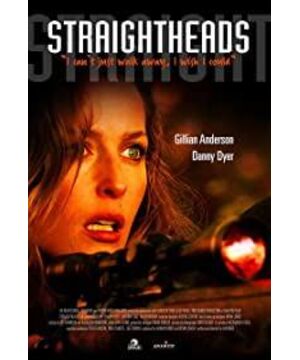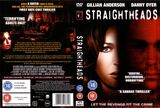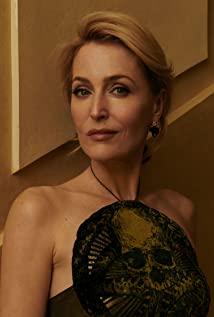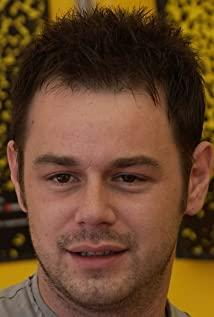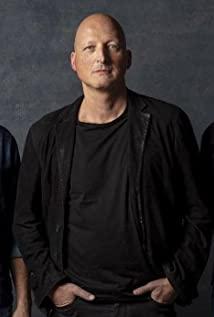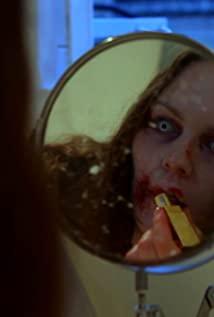Closure background creation
2022-07-10 17:55
"Straightheads" tells the story of a middle-class couple who are brutally murdered by gangsters, barely survived, and then turn to a frantic revenge. The film is the first feature film of director Don Reid, who was a documentary filmmaker. In an interview with reporters, he told us some of the challenges encountered during the filming process and why he was so fascinated by the dark side of human nature.
[Can you talk about the unusual creative inspiration for this film and the attempted rape you witnessed? 】
Around 1999, I had already started working on the story of Straightheads, but the ending that was envisioned at that time was completely different from the ending that my thinking stage set. But several things happened at the time that made it take shape, and I quickly got into the writing phase of the script. One of them was that I started to fall into nightmares again, which I hadn't had in a long time. I made documentaries for many years, too many years, and I was filming in Kosovo . The dream is completely gone. But soon I was in La Habana, Cuba; when I was out in English, I was dreaming again. That night, I dreamed that I was driving through the passage under the viaduct and saw a girl playing with her father, chasing and running on the sidewalk beside the passage. My girlfriend, who is already my wife, said to me, "No, no, stop, there's a situation." I realized it was the guy on the bike who was chasing the girl. I parked the car and walked out, just as the man lay on top of the girl and ripped her clothes. I scared him off and took the girl home.
In the dream, I played both the role of the raped and the man who was scared away. And there was a hallucination at night, and there was a deer on the road. There was a lot of atmosphere, fear, and delusion in that dream that ended up in Straightheads.
[Compared with Nick Raff's new film Outlaw (2007), what do you think is the difference between the two? 】
In "Straightheads", a very important point and also why I wrote the screenplay is that I have encountered so much violence in my documentary career. The film's performance of revenge is debatable. It's always cause and effect, a lot of things they can't predict. Once you're violent, then you can't control what's going to happen, and you can't control the ending. Nor can you control what happens to those who fight alongside you in your righteous mission.
So, Gillian's partner is completely out of control by the time the crime ends at the end of the film. He possesses all kinds of demons, and he unleashes them in his own way. In a way she also wanted to save her own soul, she was making deals with her own demons. It's not a traditional revenge movie where the two end up walking out hand in hand. Violence does not eliminate violence. When violence meets violence is not the final answer. The balance of the world has not been restored. By the end of the movie, it's going to be a much dirtier and more complicated place than it was at the beginning.
"Lawless" may be pushing this problem down to a unique philosophical level, but in fact you may encounter violence and violence will force you to be more courageous to face and solve problems. But revenge in Lawless doesn't work at all, because those people are so low-level that the cops show up before they can do anything destructive. So they have two different approaches. It is more of a warning parable than a call to action.
[Can you talk about a comparison with another film, Straw Dogs (1971)? 】
In Straw Dogs, Dustin Hoffman 's character is supposed to be a rational, democratic-loving man who is forced into the situation when he is drawn into protecting a murderer from an angry crowd. Take action. Dustin Hoffman uses his own hands to use violence against law, reason, and democracy, and riding off at the end of the credits shows that he did a good job and is very happy with himself. He knew the best way to save his soul in the Western world from the rabble.
At the end of Straightheads, however, Gillian's character largely saves herself, but seems meaningless under the triumph of the system or motive. She finds some answers but she has to decide between right and wrong. But before that, there was no guiding framework.
There is no urban civilization versus primitive hierarchy that Straw Dogs deals with in this film. Here are two individuals who have been completely insulated, mentally and physically, from anything that can help them. There are also no pre-prepared answers to what they should do in this situation, so they just take notice. It's quite different from the dramatic setting and the political setting, and while the idea of two people being assaulted by bad guys on the outside is pretty common, I think it's got a different message.
[The last scene is a little hard to understand, because you even start to feel some sympathy for the criminal. 】
Going back to my old job as a documentary filmmaker, when you get into a situation where something terrible has happened and you know who's to blame, you start to explore who they are and why they're doing it, it always difficult. It quickly becomes gray when you recognize it and consider whether it is black or white. That doesn't mean you have to give up blaming or make a right or wrong judgment. Everyone has a story, or everyone will try to convince you that they have a story. One aspect of Straightheads is that it is very difficult to get revenge in the form of moral atonement.
Things get complicated when Gillian's character comes face to face with the man who raped him, and he tells her a story. It's up to you to believe or doubt him, so that he will make excuses for himself to make you feel like he was forced to do this horrible thing and act like a complete stranger.
[Have you thought about your plans for the next movie, and will you make a lighter theme? 】
I really really want to make a romantic comedy. I always tell myself I need to make something mainstream and healthy. But I can only be passionate about the things that catch my attention, especially when life is drawn into the darker side and the way people behave when they are in extreme states. I think people only reveal themselves in extreme situations, otherwise they would never do it.
I'm still very interested in this aspect, still fascinated. After watching Straightheads, my friend said, "Don, we think you really have a problem. We don't know who you are." But I'm not a violent person, I don't like watching violence, even I don't even dare to watch the sparks, and I don't feel like I'm physically injured as a kind of enjoyment. So I want to clear it from work and maybe make a musical or a romantic comedy.
Extended Reading


